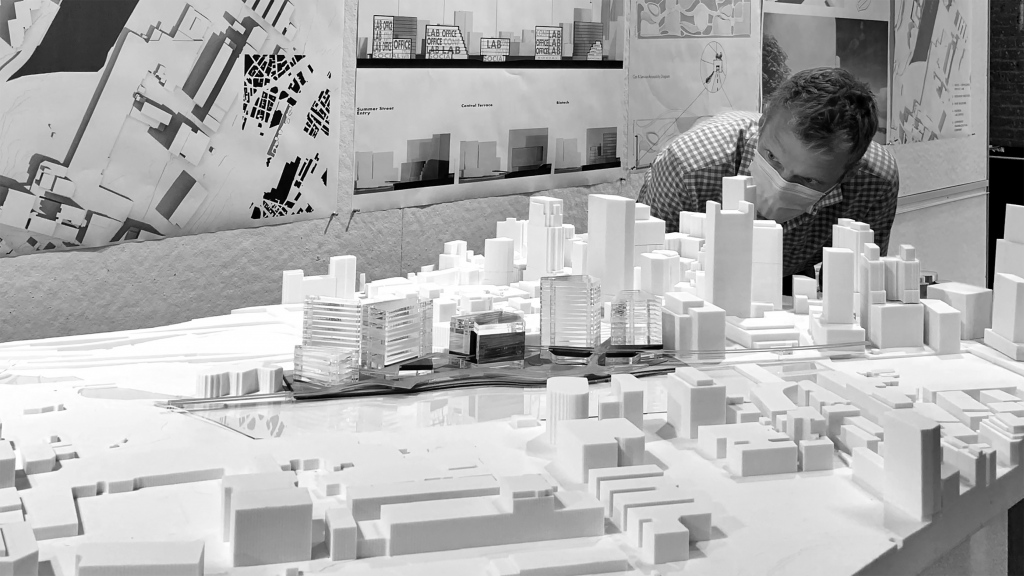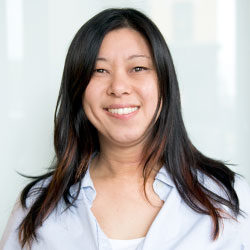Within our practice, teaching is elevated to craft. As time is a paramount driver in the creation of craft, we are all students. But at the same time, we are all teachers, with empirical and learned knowledge and unique expertise that we share every day with our colleagues, peers and students.
Craft can be thought of as a slow, methodical practice where care and attention are a priority. At PAYETTE, each member of our staff oscillates between student and teacher each day, each week, each year of engagement here. It is a slow and evolving process of creating architects. We readily admit that it takes time, but we are all committed to the process and education of the next generation of architects.
The OpenLAB Studio provides us the opportunity to have a cohort of students integrated within our practice and elevates us to teachers for a new group of young architects. We leverage our deep knowledge of the process of making architecture, our ability to solve spatial problems within our complex typologies and our masterful skill with fabrication towards effective teaching where each OpenLAB student comes away from the semester, changed by their experiences with us. Now in our fourth year, we are starting to refine our tools and methods as teachers, just as a craftsman does.

We understand that at the heart of teaching as craft is the notion that our job is not just to impart knowledge but also to inspire curiosity and ignite a passion for learning. As a literal place, PAYETTE’s studio environment exists to excite. This is true not just for OpenLAB, but for our staff, our consultants and our clients. As one walks through our space, you cannot help but be excited by the many models, exquisitely crafted from the scale of being held in your hands to the undeniable physical presence of something modeled at full scale. We proudly exhibit both finished work and work in progress together, allowing everyone to share in the narratives and stories of making architecture.
Teaching as craft also requires a strong foundation of technique or process, as evident in the design studio portion of the OpenLAB curriculum. Here the studio problem is carefully crafted to ensure that the artifacts of the design process are not just beautiful but that there exists a deep logic and meaning that is brought to bear in the resultant architecture. We have created synergies as students go from one assignment to the next; weaving together opportunities to design, reflect, remake and refine their ideas as they jump in scale and focus.
Our fabrication course is literal craft. If the attributes of craft include skill, technique, attention to detail and knowledge of material and process, this is clearly where craft exists in spades. This is readily evident in artifacts like the Digital Quilts each year, but also in the large-scale mock-ups that the OpenLAB students produce for the Final Review.
Lastly, at the heart of teaching as craft lies the art of communication. A masterful teacher weaves a tapestry of stories – in this case, sharing the sheer scope of everything you can do as an architect – to help people find their place in the profession. The professional practice course is where we create space for architects to share their stories demonstrating how everyone’s experiences in the profession are unique and how broad the profession really is. Through one-on-one discussions, lectures and panel discussions, we have crafted an experience that relies on everyone at PAYETTE participating through their engagement with the students.
Everyone teaches.
But we also listen. So that we can be students again.


